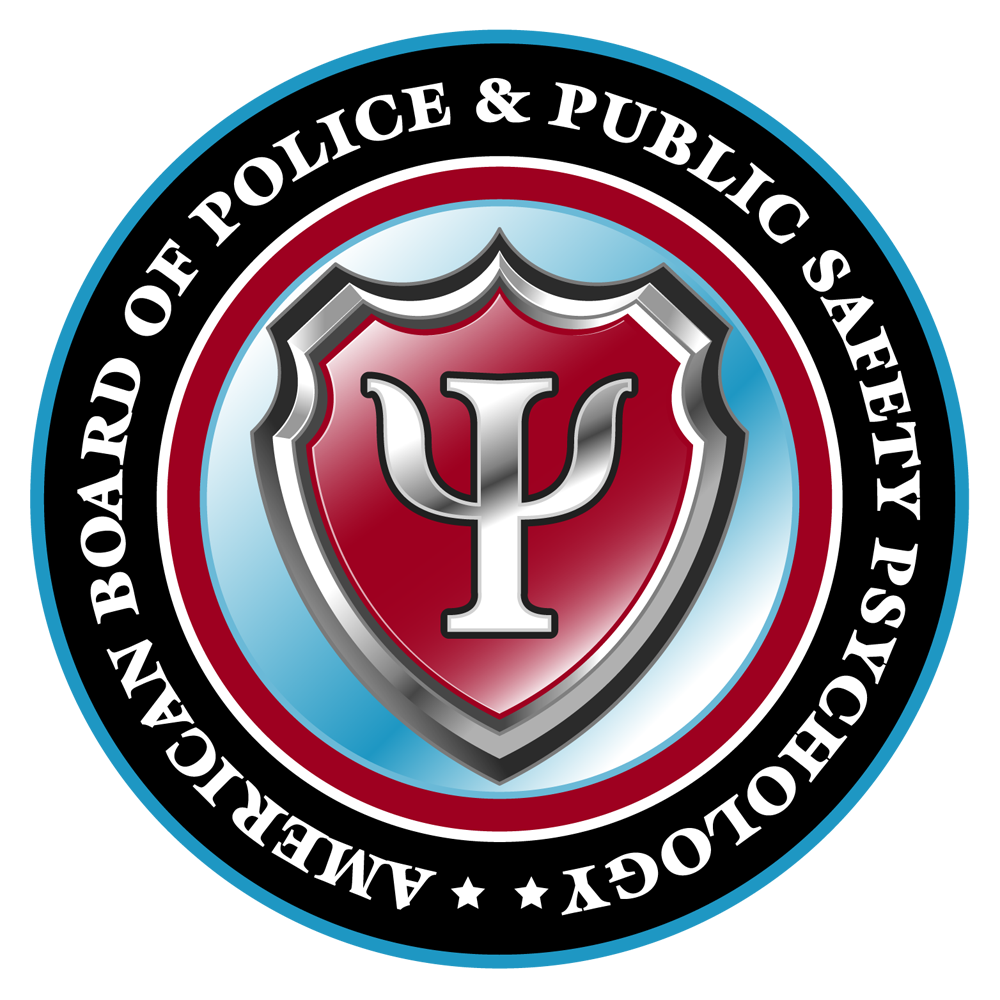6 hours | 6 CEs
This on demand professional training program on Preparing for Board Certification in Police & Public Safety Psychology is presented by Jeni McCutcheon, PsyD, ABPP & Gary Fischler, PhD, ABPP, in partnership with The American Board of Police and Public Safety Psychology (ABPPSP).
This program is California POST CPE approved for 3 CE hours.
Psychologists who practice in police and public safety psychology (PPSP) often choose to have their competence recognized through board certification by the American Board of Police and Public Safety Psychology (ABPPSP), one of the 15 specialty boards of the American Board of Professional Psychology (ABPP).
This program is presented by the current National Chair of Examinations (NCE) and his immediate predecessor and describes the distinctive PPSP knowledge areas, including cultural competence; ethical, legal, and practice standards; essential PPSP functions; and the unique aspects of police and public safety personnel and organizations. In addition, it describes the benchmarks and foundational PPSP competencies necessary to practice in its four primary domains: assessment, clinical intervention, operational support, and organizational consultation.
The program provides a step-by-step guide on applying for board certification, including preparing the Practice Sample, choosing work samples, and technical submission requirements. In addition, an overview of the board certification process is provided, including submitting the initial application, submitting the Practice Sample, obtaining feedback from the Practice Sample Review Committee, and the Oral Examination process. Finally, this program covers how to create and implement a plan to acquire the knowledge and experience needed to apply for board certification, experience the benefits of board certification, succeed in the application and examination process, and identify helpful resources.

Intended Audience
This on-demand professional training program is intended for mental health and other allied professionals

Experience Level
This on-demand professional training program is appropriate for beginner, intermediate, and advanced level clinicians.

CE / CPD Credit
APA, ASWB, CPA, NBCC Click here for state and other regional board approvals.
Learning Objectives
Upon completion of this program you will be able to:

Describe the benefits of board certification in police and public safety psychology;

Describe the process by which a psychologist demonstrates competence through board certification;

Describe the differences between the four primary domains and functional competencies in police and public safety psychology;

Describe the awareness of resources to assist in becoming a board-certified specialist;

Describe the role of a professional mentor in the board certification process.

Curriculum
1. History of Police Psychology and Functional Competencies
2. Steps for Board Certification and Foundational Competencies
3. Case Law, Police Psychology Professionalism, & Technical Requirements
4. The Practice Sample, Oral Exam, and Practical Tips
Develop a Specialty Area of Practice
Transforming mental health professionals into experts
Expert Instructors
Professional training developed and delivered by the field's leading experts

CE Credit
Earn CE credit for meaningful professional training that will elevate your practice
Convenience & Flexibility
Learn at your own pace, from wherever you might be!
Program Partner
American Board of Police and Public Safety Psychology (ABPPSP)
We are proud to partner with The American Board of Police and Public Safety Psychology (ABPPSP) for this training. ABPPSP became a fully affiliated specialty board of the American Board of Professional Psychology (ABPP) on October 21, 2011. Police and Public Safety Psychology is concerned with assisting law enforcement and other public safety personnel and agencies in carrying out their missions and societal functions with optimal effectiveness, safety, health, and conformity to laws and ethics. It consists of the application of the science and profession of psychology in four primary domains of practice: assessment, clinical intervention, operational support, and organizational consultation.

CE Sponsorship Information
Palo Alto University, Continuing and Professional Studies (CONCEPT) is approved by the American Psychological Association to sponsor continuing education for psychologists. Palo Alto University, Continuing and Professional Studies (CONCEPT) maintains responsibility for this program and its content. Palo Alto University, Continuing and Professional Studies (CONCEPT) is approved by the Canadian Psychological Association to offer continuing education for psychologists. Palo Alto University, Continuing and Professional Studies (CONCEPT), SW CPE is recognized by the New York State Education Department’s State Board for Social Work as an approved provider of continuing education for licensed social workers #SW-0356 and the New York State Education Department’s State Board for Mental Health Practitioners as an approved provider of continuing education for licensed mental health counselors. #MHC-0073. Palo Alto University, Continuing and Professional Studies (CONCEPT) has been approved by NBCC as an Approved Continuing Education Provider, ACEP No. 6811. Programs that do not qualify for NBCC credit are clearly identified. CONCEPT Professional Training, #1480, is approved to offer social work continuing education by the Association of Social Work Boards (ASWB) Approved Continuing Education (ACE) program. Organizations, not individual courses, are approved as ACE providers. State and provincial regulatory boards have the final authority to determine whether an individual course may be accepted for continuing education credit. CONCEPT Professional Training maintains responsibility for this course. ACE provider approval period: 11/22/23-11/22/26. Social workers completing this course receive (clinical or social work ethics) continuing education credits.



